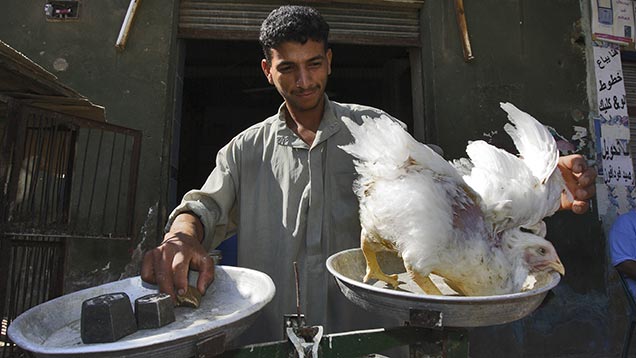Human death toll rises as bird flu hits Egypt
 © Josef Niedermeier/REX
© Josef Niedermeier/REX
Increasing cases of H5N1 high pathogenic avian influenza in Egypt, in both bird and human populations, remains a “cause for considerable concern”, according to the World Health Organisation.
According to a new study by the WHO, in collaboration with the World Organisation for Animal Health, there have been 165 reported human cases of H5N1 in Egypt since last November, including 48 deaths.
“This is by far the highest number of human cases ever reported by a country over a similar period. There are indications that H5N1 is circulating in all sectors of poultry production and in all parts of Egypt,” said a joint statement.
See also: US declares state of emergency
“While the risk for the current situation to escalate into an H5N1 pandemic does not appear to have been changed appreciably, the situation remains a cause for considerable concern.”
The report points to the “unmonitored” and “uncontrolled” nature of poultry farming in Egypt, as many small farmers have turned to keeping chickens for food and income. But the recent increase in human cases is not related to virus mutations.
“The most likely reason for the increase in cases is that more poultry in Egypt are infected by H5N1 and so more people are exposed to this virus,” said Dr Keiji Fukuda, head of the WHO’s investigation team in Egypt. “Coupled with insufficient awareness, behavioural patterns and inadequate precautions taken by humans when interacting with poultry, this explains what we are seeing.”
The report found that almost 70% of recent human cases had known exposure to infected backyard poultry, though it did not exclude the possibility of human-to-human transmission.
It called for strengthened surveillance, improved biosecurity and better disease control (including vaccination), as well as closer collaboration between human and animal health departments.
